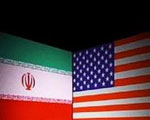 New York Times: The Iranian scientist who American officials say defected to the United States only to be pressured by Iran to return home has made his first appearance since his arrival last week in Tehran, adding details to what he says was his abduction, psychological torture and eventual release by American intelligence agents.
New York Times: The Iranian scientist who American officials say defected to the United States only to be pressured by Iran to return home has made his first appearance since his arrival last week in Tehran, adding details to what he says was his abduction, psychological torture and eventual release by American intelligence agents.
The New York Times
By WILLIAM YONG
 TEHRAN — The Iranian scientist who American officials say defected to the United States only to be pressured by Iran to return home has made his first appearance since his arrival last week in Tehran, adding details to what he says was his abduction, psychological torture and eventual release by American intelligence agents.
TEHRAN — The Iranian scientist who American officials say defected to the United States only to be pressured by Iran to return home has made his first appearance since his arrival last week in Tehran, adding details to what he says was his abduction, psychological torture and eventual release by American intelligence agents.
A videotaped interview with the scientist, Shahram Amiri, broadcast on Iran’s state television Saturday evening, showed him against a black backdrop and under bright studio lights, beads of sweat glistening on his forehead.
Mr. Amiri accused American agents of trying to coerce him to confess to being a spy so they could try to exchange him for three young hikers from the United States who have been held by Iran since they wandered over the border from Iraq in July 2009.
“They told me that if I confess to being an Iranian intelligence agent, they could trade me with the three spies who were caught near the Iraqi border,” Mr. Amiri told the interviewer, who then asked him whether the United States agents had specifically used the term “spy” to describe the hikers.
“Yes, they used the word ‘spy’ and told me that trading spies between countries is quite normal,” Mr. Amiri replied.
Mr. Amiri has said that he was kidnapped by the Central Intelligence Agency and Saudi agents while on a pilgrimage in Saudi Arabia in June 2009, then tortured by C.I.A. agents to reveal secrets about Iran’s nuclear program, although he insists he knew nothing about the program.
His account of what happened to him differs markedly from the United States version.
American intelligence officers, most of whom would speak only on condition of anonymity because of the sensitive nature of the case, have described Mr. Amiri as a long-term informant. They said he provided details about how Malek Ashtar University in Tehran, where he worked, had become the covert headquarters for the organization responsible for designing nuclear weapons and warheads that could fit atop an Iranian missile.
They also said that while still in Iran, he was one source for a much disputed National Intelligence Estimate on Iran’s suspected weapons program, which was published in 2007.
In the televised interview, Mr. Amiri said that after several weeks of lie detector tests and interviews with psychologists, his American captors accepted that he had no important information to give them and that they had made a mistake in abducting him.
“After that, they thought there might be some hope that I would cooperate with them in the media,” Mr. Amiri said, adding that at that point he was moved from military custody into more comfortable residential surroundings.
He said he lied in an effort to convince his captors that he intended to remain in the United States. “It was a six-month process during which I behaved in a way which made them think that I had long-term plans to stay in the United States,” he said.
During that time, Mr. Amiri said, the United States arranged for him to attend a university in Virginia and supplied him with a driver’s license and Social Security number, although, he said, he had not requested either document.
In June, Iran state television broadcast a poor-quality video message from a man claiming to be Mr. Amiri, describing the kidnapping and saying that Iranian agents had found a way to contact him during his captivity. Citing “national security” concerns, he did not disclose details of how this had occurred.
In the interview broadcast Saturday, Mr. Amiri said, “In reality, our country’s intelligence services were able to contact me and they provided me with the necessary facilities to make my first film.”
He added that after further contact with Iranian agents, he was able to hold a brief video conversation with his wife, which gave him “complete confidence” in the Iranian authorities and the well-being of his family.
At the end of Saturday’s hourlong interview, Mr. Amiri asked to offer his final words to prospective viewers, quoting Ayatollah Ruhollah Khomeini, the leader of Iran’s Islamic Revolution in 1979, who once called the United States an “empty drum.”
“Before all this happened, I did not understand exactly what that meant,” Mr. Amiri said, “but I now know that the intelligence war is a battle of minds, not a battle of technology and facilities in which the U.S. intelligence services are far more powerful.”


